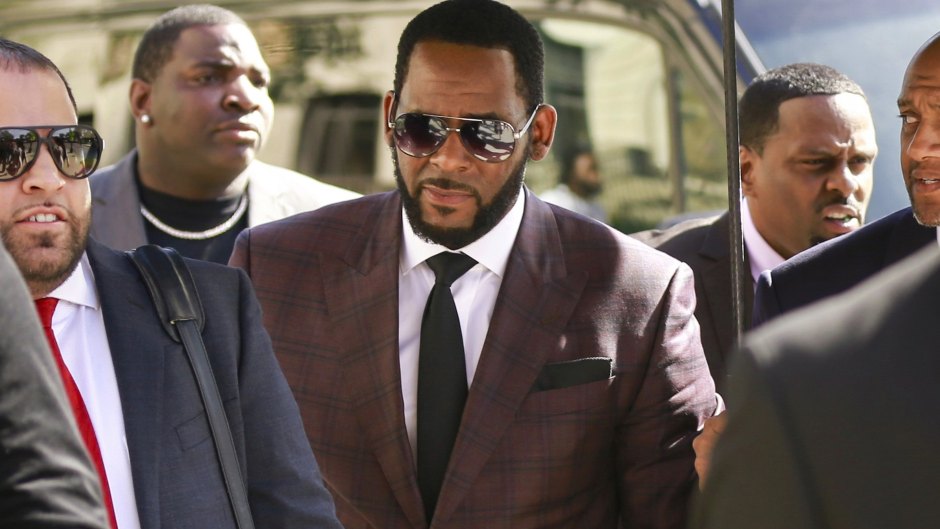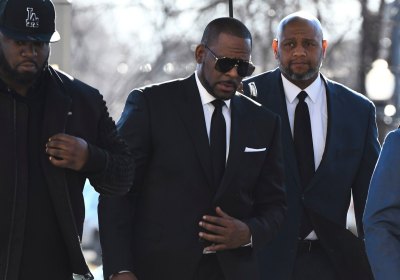
Shutterstock
R. Kelly Found Guilty of Racketeering and Sex Trafficking Charges at Federal Trial
R. Kelly (real name: Robert Sylvester Kelly) was found guilty of racketeering and sex trafficking charges during a federal trial, In Touch can confirm.
Jurors deliberated for hours to reach their verdict on Monday, September 27, finding the R&B performer, 54, guilty on all nine counts, following accusations against him that spanned from at least 1992 to 2017.

Kelly was charged with one count of racketeering, with 14 underlying acts that included sexual exploitation of a child, kidnapping, bribery and sex trafficking charges, in addition to eight additional counts of violations of the Mann Act.
“We are extraordinarily disappointed in the verdict that was returned by the New York jury today,” Kelly’s lawyer tells In Touch in a statement. “Mike Leonard and myself believe that the verdict was not supported by the evidence and instead is a reflection of the hysteria whipped up by a couple of TV shows. We intend to continue to fight on R. Kelly’s behalf to ensure that everything is being done that can possibly be done.”
Kelly could face decades behind bars during his sentencing hearing, which has been scheduled for May 4, 2022.
Despite maintaining his innocence throughout the trial, prosecutors said the victims included two teen girls who first met him due to being fans. Late R&B star Aaliyah, who wed R. Kelly in the 1990s when she was only 15, was also one of the six female victims involved in the charges.

Dozens of witnesses were called to the stand, including accusers who claimed they were groomed for sex and endured psychological abuse from the “I Believe I Can Fly” singer, who was said to have used his fame and influence to attract them.
“He used lies, manipulation, threats and physical abuse to dominate his victims,” prosecutor Elizabeth Geddes told the court in her closing statements, claiming his superstar status allowed him to “hide in plain sight,” according to the New York Times. “When someone commits a crime as part of a group, he’s more powerful — more dangerous,” Geddes continued. “Without his inner circle, the defendant could not have carried out the crimes he carried out for as long as he did.”
Have a tip? Send it to us! Email In Touch at contact@intouchweekly.com.







































